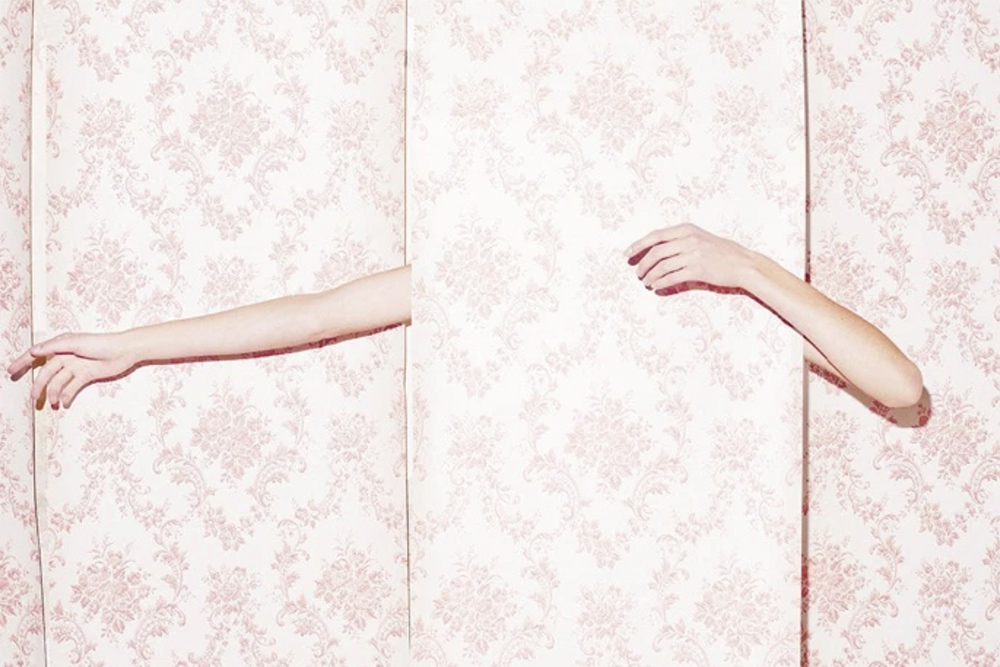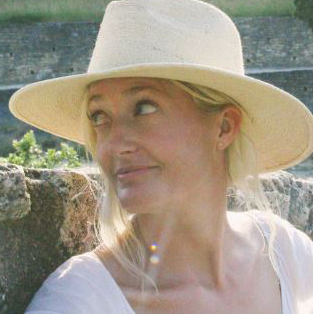Getting older is perpetually complicated, especially when our bodies don’t feel as comfortable and cozy as they once did. It’s difficult to watch a body shift and stretch and increase in both its capacity and size. As a woman, it can be even trickier to embrace who we are physically — to celebrate our unique aspects rather than compare them — and to be grateful for a fully functional form. In a few months’ time, I will turn 37-years-old. Unlike many of my friends, I have not had the privilege of birthing children; I have not undergone major surgery or had a significant health diagnosis or experienced a physical trauma. Instead, my body has worn and grown in all of the usual, subtle ways. It has evolved, and while I once was able to eat late-night tacos and drink beer to my heart’s content, those days are long gone. Biology has a funny way of evening the score. I may be wiser than I was when I was 21, but I’ve also accrued a few more pounds, wrinkles, and well-appointed divots. Sometime between those late-night drive-thru visits and my current 9:30 p.m. bedtime routine, my body has (gasp) changed.
Feeling at home in our own skin is not for the faint of heart. While the idea of self-acceptance is straightforward, the context is not. Today’s culture is loud and confusing when it comes to defining what is physically desirable. I think that most of us have wisened up and intuitively understand that reaching towards the unrealistic goals of beauty seen in the media is not a good use of our time or energy. We recognize that those shiny, photoshopped bodies are not our own, and that the ever-changing standards that we concoct by comparing ourselves to others is a constantly moving, if not infuriating, target. But lately, I’ve noticed a new pattern emerging in the way in which my peers and I are viewing our bodies, and I can’t help but see the incongruity. What happens when we pivot from these curated ideals in the media to another kind of unhealthy image — ideas and goals based on what we used to look like, what we used to weigh, what size we used to wear, etc.? Why are we so quick to accept the changing seasons of our lives, but have such difficulty accepting the evolving seasons of our very own bodies?
I can recall one day that I found myself in a fitting room with a rack full of blousy, summer dresses, hopeful that each would cover up the parts of me that I don’t always feel comfortable flaunting. As I tried on each one, criticizing every angle and bump, I flashed back to a similar scene almost ten years prior. I remembered a poorly-lit fitting room, a rack full of dresses, and the same critical eye. I didn’t like what I saw, and 26-year-old me wanted to look like how I did in a previous season of life. I was too big! My legs were too thick! My skin wasn’t glowing! I remember leaving the dressing room, tears streaming, frustrated at how terrible I felt. This very same scene has happened periodically over the years, but with growing irony. While I may have improved in shying away from comparing myself to all of the women that surround me, I’m still struggling in not comparing myself to, well, me.
No matter what age we are, it is perpetually tempting to look back, envious of our pre-marriage, pre-baby, pre-diagnosis, pre-divorce, pre-medication, pre-job change, pre-graduate school, pre-everything self. Why don’t I still look like that? We ask, forgetting that there has most likely always been a previous version of ourselves that has served as our very own false standard. We’ve traded one moving target for another. I’ve found that this is especially common among thirty and forty-something women who are working hard to embrace their bodies, and to not view the ways in which they have changed as a demerit, a failure, or something to be ashamed of.
In many ways, I’m proud of the progress that has been made to celebrate our bodies and their varying sizes, shapes, and purposes. While there are undoubtedly additional strides to be made, more and more, I see and take to heart the message that our bodies are sacred, if only because they are our very own. I recognize and celebrate the work that has been done to change the narrative about what is sexy, beautiful, and worthy. It’s a powerful thing, this conversation, and I’m so thankful that it is occurring. The problem is, I sometimes struggle to apply the narrative of this conversation to myself. While I hold tightly to this truth for the other women in my life, I can stumble in believing that my current body is precious and healthy and beautiful as it is, rather than comparing it to previous iterations and images that I’ve held on to. While I may know that it is unrealistic to strive to look like someone I’m not, it is still easy to punish myself for not looking like the “best” version of me.
And so today, I’m working hard to show compassion to myself and where my body is right now. I’m reminding myself that weight loss and gain can be normal, that cellulite is not a curse, and that hormonal changes are a powerful force within our bodies’ systems. I’m reminding myself that I have the power to elicit change — that I can help myself to grow stronger and healthier if and when I’d like — and that this is a true privilege. I’m also reminding myself that these changes take time, as does anything worth embracing, and that heckling my current body does not empower my future one.
Instead of viewing our bodies as a manifestation of the ways in which we have failed, maybe we can learn to see them as strong, healthy vessels. And, instead of seeing them as personal billboards for all of the things that we are not, maybe we can see them for what they truly are: a physical representation of the life we have been given, the lives we have birthed, the places we’ve seen, the experiences we’ve had, and the memories that we have accrued. If our bodies are our most tangible testimony of a life wholly-lived, well, then I’m choosing to celebrate the hell out of mine. Feel free to join me. I’ll bring the tacos.














Kelley
December 5, 2019 at 10:33 amI just turned 40 this year and had a third baby and really identify with this piece. I’ve been focusing hard on how I feel, rather than how I may look from the outside. Its sometimes a struggle though, and has been for a very long time. Luckily though, I find that as I continue to age and build a life full of experience, it gets easier. Especially when I think about how my feelings towards my body and the way I talk about it and relate to it can influence how my children think about theirs. Thanks for this.